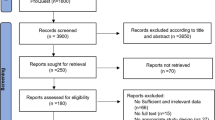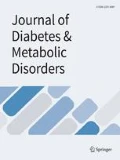Abstract
Background
Type 2 diabetes mellitus (T2DM) is a multifactorial trait that both environmental and genetic factors contribute to its pathogenesis. The most common single nucleotide polymorphism (SNP) of the potassium voltage-gated channel subfamily Q member 1 (KCNQ1) gene, rs2237892, is highly associated with the risk of T2DM. The aim of the present study was to examine any association between KCNQ1 gene rs2237892 variant and risk of T2DM in a group of Iranian patients.
Methods
Genotyping was carried out in 100 type 2 diabetic patients and 100 non-diabetic subjects using the Sanger sequencing method.
Results
The CC genotype caused more than 30% reduction in the risk of T2DM in compared with CT. Nonetheless, this association was not statistically significant and this variant had no protective effect for T2DM. A significant difference was not found in genotypes (CC, CT, and TT) and alleles (C and T) frequency of KCNQ1 rs2237892 SNP between T2DM and control groups (P = 0.475 and P = 0.470, respectively).
Conclusions
Our investigations did not show enough evidence for the presence of an association between KCNQ1 gene rs2237892 polymorphism and risk of T2DM among a group of Iranian patients.
Similar content being viewed by others

Data availability
Data supporting the results reported in a published article can be found.
Abbreviations
- T2DM:
-
type 2 diabetes mellitus
- GWAS:
-
genome-wide association studies
- KCNQ1 :
-
potassium voltage-gated channel subfamily Q member 1
- ADA:
-
American Diabetes Association
- FPG:
-
Fasting Plasma Glucose
- OGTT:
-
Oral Glucose Tolerance Test
- HbA1c:
-
Hemoglobin A1C
- PCR:
-
Polymerase Chain Reaction
- OR:
-
Odds Ratio
- CI:
-
Confidence Interval
- SD:
-
Standard Deviation
- BMI:
-
body mass index
References
Pal A, McCarthy MI. The genetics of type 2 diabetes and its clinical relevance. Clin Genet. 2013;83(4):297–306.
Stancakova A, Laakso M. Genetics of type 2 diabetes. Endocr Dev. 2016;31:203–20.
International Diabetes Federation. IDF Diabetes Atlas. 6th ed. Brussels: International Diabetes Federation; 2013.
Wu Y, Ding Y, Tanaka Y, Zhang W. Risk factors contributing to type 2 diabetes and recent advances in the treatment and prevention. Int J Med Sci. 2014;11(11):1185.
Prokopenko I, McCarthy MI, Lindgren CM. Type 2 diabetes: new genes, new understanding. Trends Genet. 2008;24(12):613–21.
Cui LJ, Chang XY, Zhu LY, Feng G, Zhou T, Zhang CX, et al. Relationship between the polymorphisms in KCNQ1 and type 2 diabetes in Chinese Kazakh population. Genet Mol Res. 2016;15(2).
Unoki H, Takahashi A, Kawaguchi T, Hara K, Horikoshi M, Andersen G, et al. SNPs in KCNQ1 are associated with susceptibility to type 2 diabetes in east Asian and European populations. Nat Genet. 2008;40(9):1098–102.
Yasuda K, Miyake K, Horikawa Y, Hara K, Osawa H, Furuta H, et al. Variants in KCNQ1 are associated with susceptibility to type 2 diabetes mellitus. Nat Genet. 2008;40(9):1092–7.
Cho YS, Lee JY, Park KS, Nho CW. Genetics of type 2 diabetes in east Asian populations. Curr Diab Rep. 2012;12(6):686–96.
Li YY, Wang XM, Lu XZ. KCNQ1 rs2237892 C-->T gene polymorphism and type 2 diabetes mellitus in the Asian population: a meta-analysis of 15,736 patients. J Cell Mol Med. 2014;18(2):274–82.
Barhanin J, Lesage F, Guillemare E, Fink M, Lazdunski M, Romey G. KvLQT1 and IsK (minK) proteins associate to form the IKs cardiac potassium current. Nature. 1996;384(6604):78.
Saif-Ali R, Muniandy S, Al-Hamodi Z, Lee CS, Ahmed KA, Al-Mekhlafi AM, et al. KCNQ1 variants associate with type 2 diabetes in Malaysian Malay subjects. Ann Acad Med Singap. 2011;40(11):488–92.
Dai XP, Huang Q, Yin JY, Guo Y, Gong ZC, Lei MX, et al. KCNQ1 gene polymorphisms are associated with the therapeutic efficacy of repaglinide in Chinese type 2 diabetic patients. Clin Exp Pharmacol Physiol. 2012;39(5):462–8.
Tan JT, Nurbaya S, Gardner D, Sandra Y, Tai ES, Ng DP. Genetic variation in KCNQ1 associates with fasting glucose and beta-cell function: a study of 3734 subjects comprising three ethnicities living in Singapore. Diabetes. 2009.
Hu C, Wang C, Zhang R, Ma X, Wang J, Lu J, et al. Variations in KCNQ1 are associated with type 2 diabetes and beta cell function in a Chinese population. Diabetologia. 2009;52(7):1322–5.
American Diabetes Association (ADA). Standards of medical care in diabetes. Diabetes Care. 2017;40(Suppl 1):S1–S135.
Miller SA, Dykes DD, Polesky HF. A simple salting out procedure for extracting DNA from human nucleated cells. Nucleic Acids Res. 1988;16:1215.
Tsai F-J, Yang C-F, Chen C-C, Chuang L-M, Lu C-H, Chang C-T, et al. A genome-wide association study identifies susceptibility variants for type 2 diabetes in Han Chinese. PLoS Genet. 2010;6(2):e1000847.
Chen Z, Zhang X, Ma G, Qian Q, Yao Y. Association study of four variants in KCNQ1 with type 2 diabetes mellitus and premature coronary artery disease in a Chinese population. Mol Biol Rep. 2010;37(1):207–12.
Turki A, Mtiraoui N, Al-Busaidi AS, Khirallah M, Mahjoub T, Almawi WY. Lack of association between genetic polymorphisms within KCNQ1 locus and type 2 diabetes in Tunisian Arabs. Diabetes Res Clin Pract. 2012;98(3):452–8.
Qi Q, Li H, Loos RJ, Liu C, Wu Y, Hu FB, et al. Common variants in KCNQ1 are associated with type 2 diabetes and impaired fasting glucose in a Chinese Han population. Hum Mol Genet. 2009;18(18):3508–15.
Lee Y-H, Kang ES, Kim SH, Han SJ, Kim CH, Kim HJ, et al. Association between polymorphisms in SLC30A8, HHEX, CDKN2A/B, IGF2BP2, FTO, WFS1, CDKAL1, KCNQ1 and type 2 diabetes in the Korean population. J Hum Genet. 2008;53(11–12):991.
Zhang W, Wang H, Guan X, Niu Q, Li W. Variant rs2237892 of KCNQ1 is potentially associated with hypertension and macrovascular complications in type 2 diabetes mellitus in a Chinese Han population. Genomics Proteomics Bioinformatics. 2015;13(6):364–70.
Been LF, Ralhan S, Wander GS, Mehra NK, Singh J, Mulvihill JJ, et al. Variants in KCNQ1 increase type II diabetes susceptibility in south Asians: a study of 3,310 subjects from India and the US. BMC Med Genet. 2011;12:18.
Tam V, Patel N, Turcotte M, Bossé Y, Paré G, Meyre D. Benefits and limitations of genome-wide association studies. Nat Rev Genet. 2019;1.
Poorolajal J. Resistance economy and new population policy in Iran. J Res Health Sci. 2017;17(1):e00367.
Acknowledgments
The authors would like to thank all subjects who involved in this study.
Author information
Authors and Affiliations
Contributions
Taraneh Erfani: technical Genetic laboratory; Negar Sarhangi: writing the first draft of manuscript; Mahdi Afshari: statistical analysis; Davood Abbasi: sample collection; Hamid Reza Aghaei Maybodi: designed the clinical study; Mandana Hasanzad: designed the Genetic study, developed the project, reviewed and revised the manuscript. All authors will read and approved the final manuscript before submission.
Corresponding author
Ethics declarations
Competing of interest
No potential conflict of interest relevant to this article was reported.
Consent for publication
Written informed consent was obtained from all participants.
Additional information
Publisher’s note
Springer Nature remains neutral with regard to jurisdictional claims in published maps and institutional affiliations.
Rights and permissions
About this article
Cite this article
Erfani, T., Sarhangi, N., Afshari, M. et al. KCNQ1 common genetic variant and type 2 diabetes mellitus risk. J Diabetes Metab Disord 19, 47–51 (2020). https://doi.org/10.1007/s40200-019-00473-4
Received:
Accepted:
Published:
Issue Date:
DOI: https://doi.org/10.1007/s40200-019-00473-4



